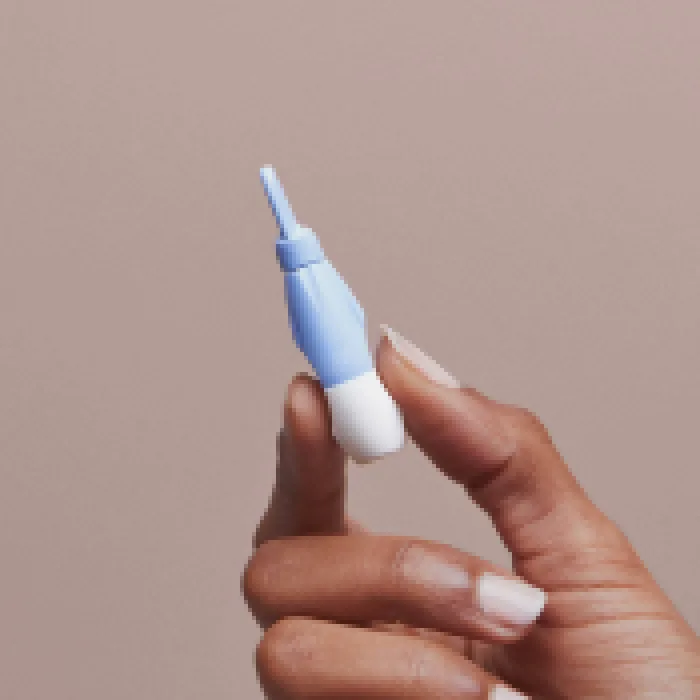Here's what we'll cover
Here's what we'll cover
Here at Modern Fertility, we’re hormone obsessed — especially when it comes to AMH. That’s because AMH levels can give us huge insight into our fertility curves and help us make decisions about the future.
Why are your AMH levels important?
AMH stands for anti-Mullerian hormone — which is a hormone released from the granulosa cells surrounding your follicles (the little fluid-filled sacs in your ovaries that house and release eggs).
Studies have shown that AMH is the most reliable hormonal marker of ovarian reserve — or how many eggs you have. AMH starts to fall starting around age 25 and normal AMH levels for your age may be a sign that you have an egg and follicle count comparable to that of other people your age, while a lower AMH may be a sign that you have a lower egg and follicle count.
Your AMH can also help you estimate your chances at success for assisted reproductive technology (ART) procedures like in-vitro fertilization (IVF) and egg freezing — and there’s some evidence that your levels can reflect when you might expect to enter menopause.
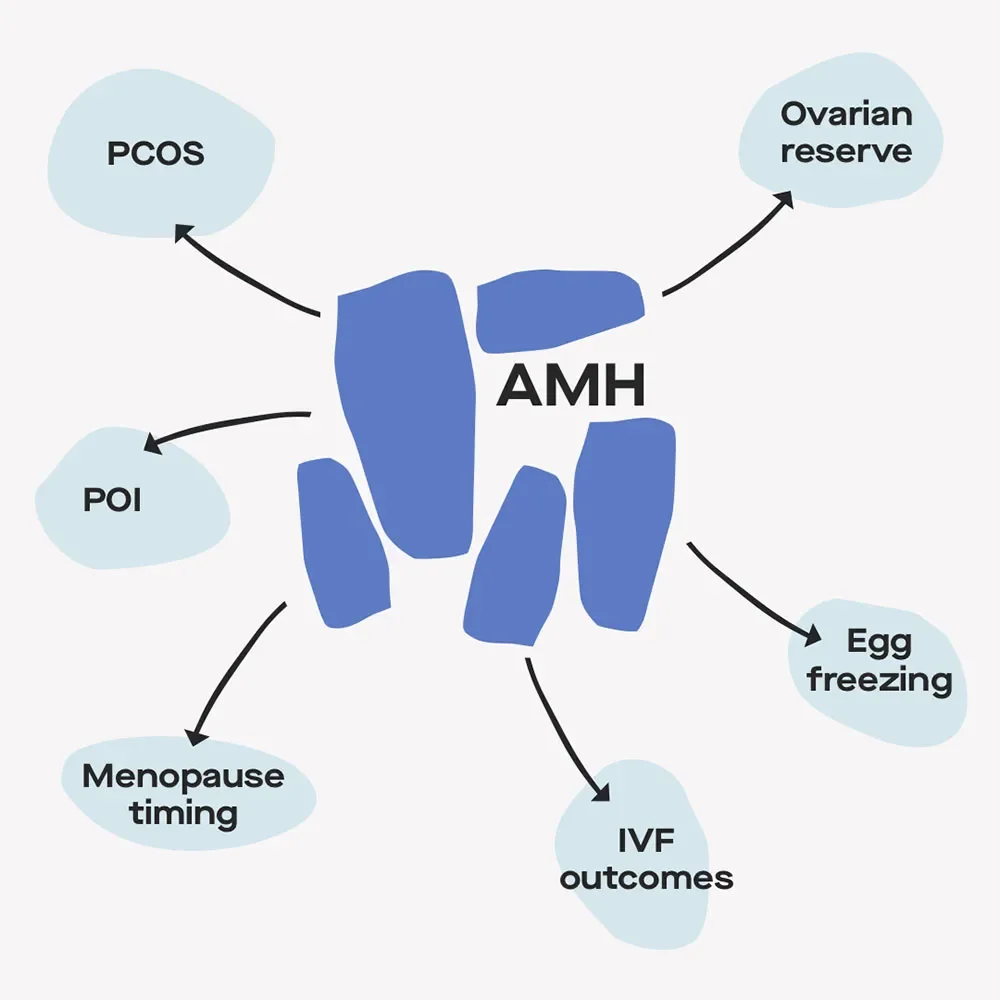
AMH hormone affects many aspects of fertility
What are normal AMH levels by age and how can they change over time?
People with ovaries are born with 1-2 million eggs — and while that sounds like a lot, the number drops a lot before you even reach puberty and multiple follicles are lost every month during your cycle until menopause when egg count and AMH levels drop down to zero.
Studies show that egg count begins to significantly diminish around age 25, more rapidly around 30, and then even more steeply around 35. As egg count goes down, so does AMH.
But the word “typically” is key here: Every individual is totally unique — your egg count and AMH may drop at a different rate. Measuring your level over time can help you track changes and predict when menopause onset might happen for you.
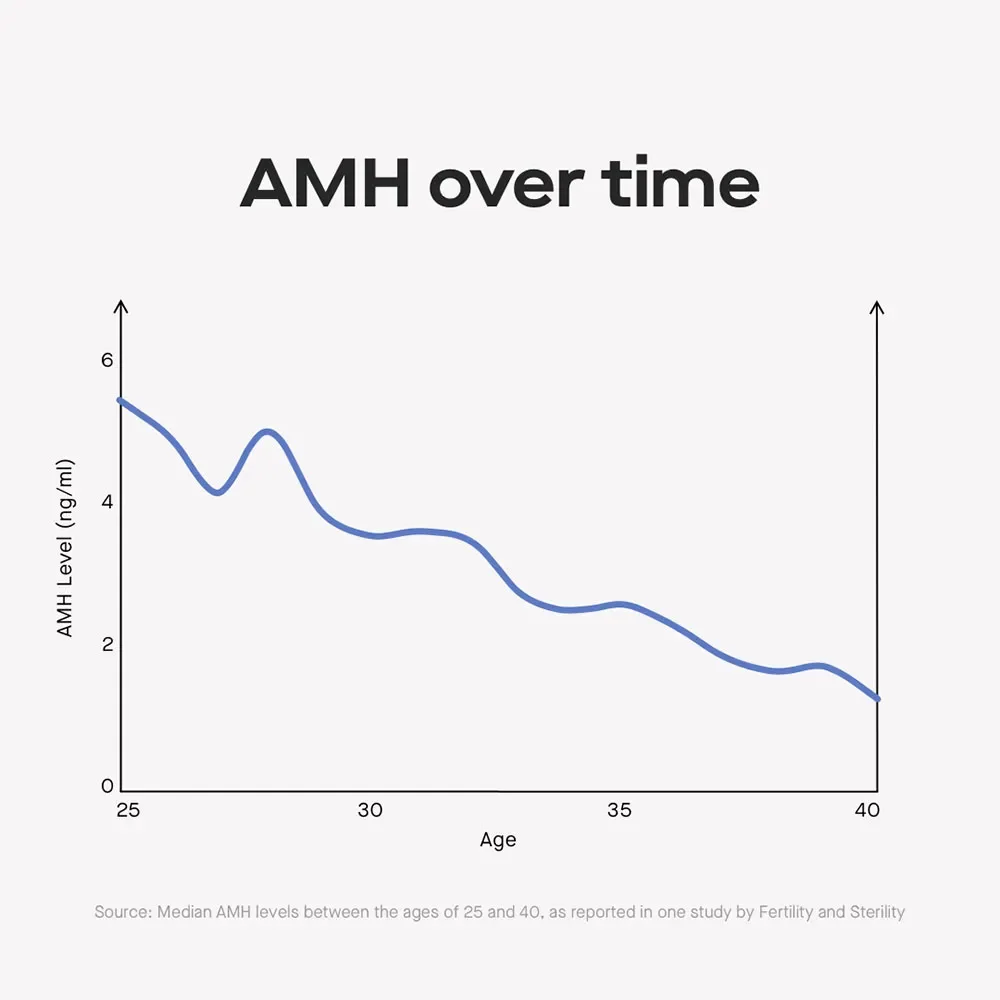
AMH levels decline with age
What can normal AMH levels tell you?
No hormone test, including an AMH test, can guarantee pregnancy or confirm infertility. Think of it like a cholesterol test — while knowing your cholesterol level can’t tell you whether or not you’ll have a heart attack, it can help you track changes over time and inform convos with your healthcare provider.
That said, if your AMH test results come back at a level expected for your age, there’s a good chance that you’ll be able to retrieve a higher number of eggs in preparation for procedures like IVF or egg freezing. It’s also likely that you’ll reach the onset of menopause around age 51 (the average age).
To sum it up: AMH isn’t a crystal ball that can look into your reproductive future, but it is the most reliable hormonal marker for understanding your unique fertility curve.
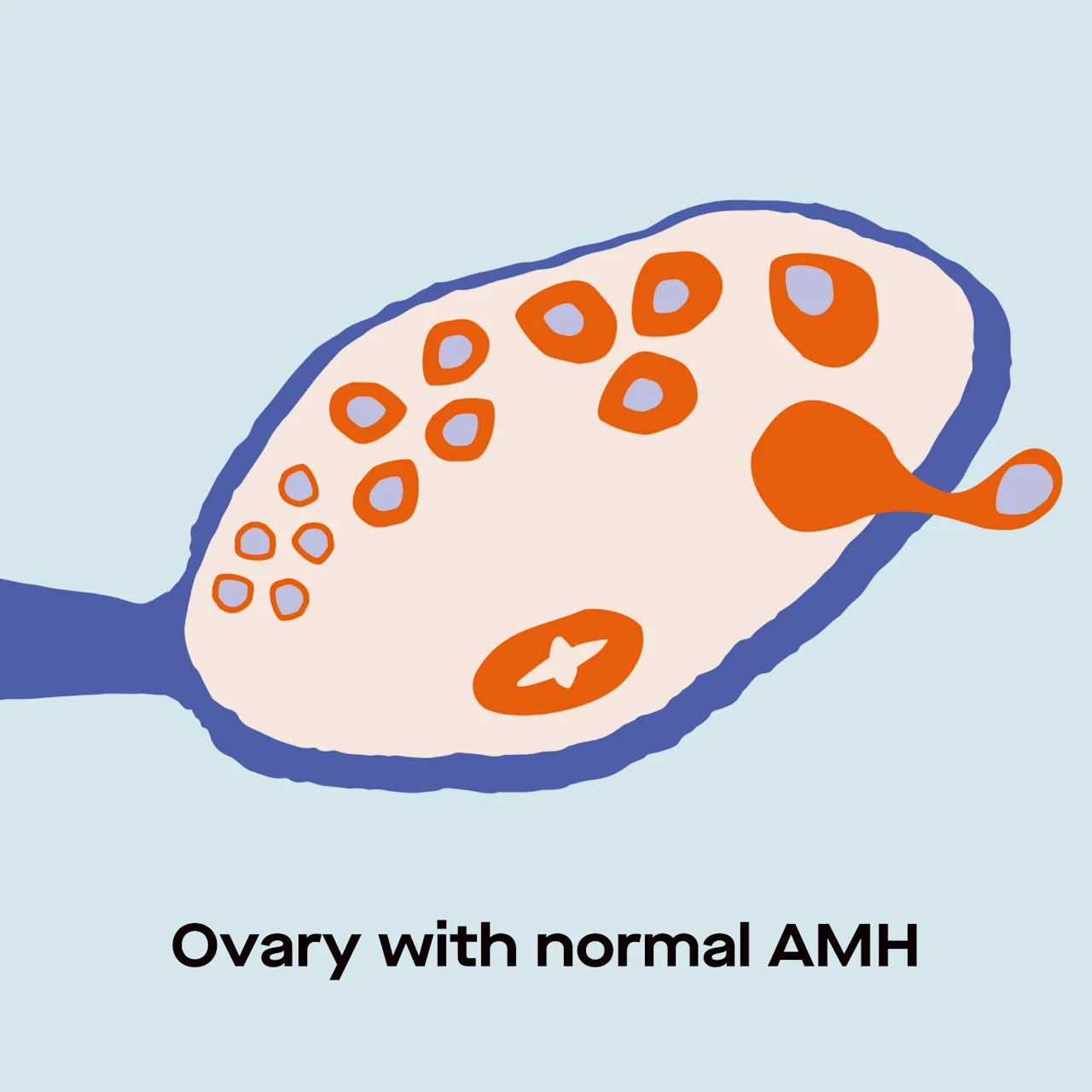
Normal AMH levels might mean more successful outcomes for IVF and egg freezing.
What can low AMH levels tell you?
Women with lower AMH for their age are likely to have a shorter reproductive window (i.e., the time between the start of periods and the onset of menopause) than women with normal AMH for their age.
According to Prof. Scott Nelson, who’s considered one of the leading experts on AMH, “When women enter menopause at an earlier age, it impacts their total fertility across their lifespan and potentially their ability to complete their desired family size.”
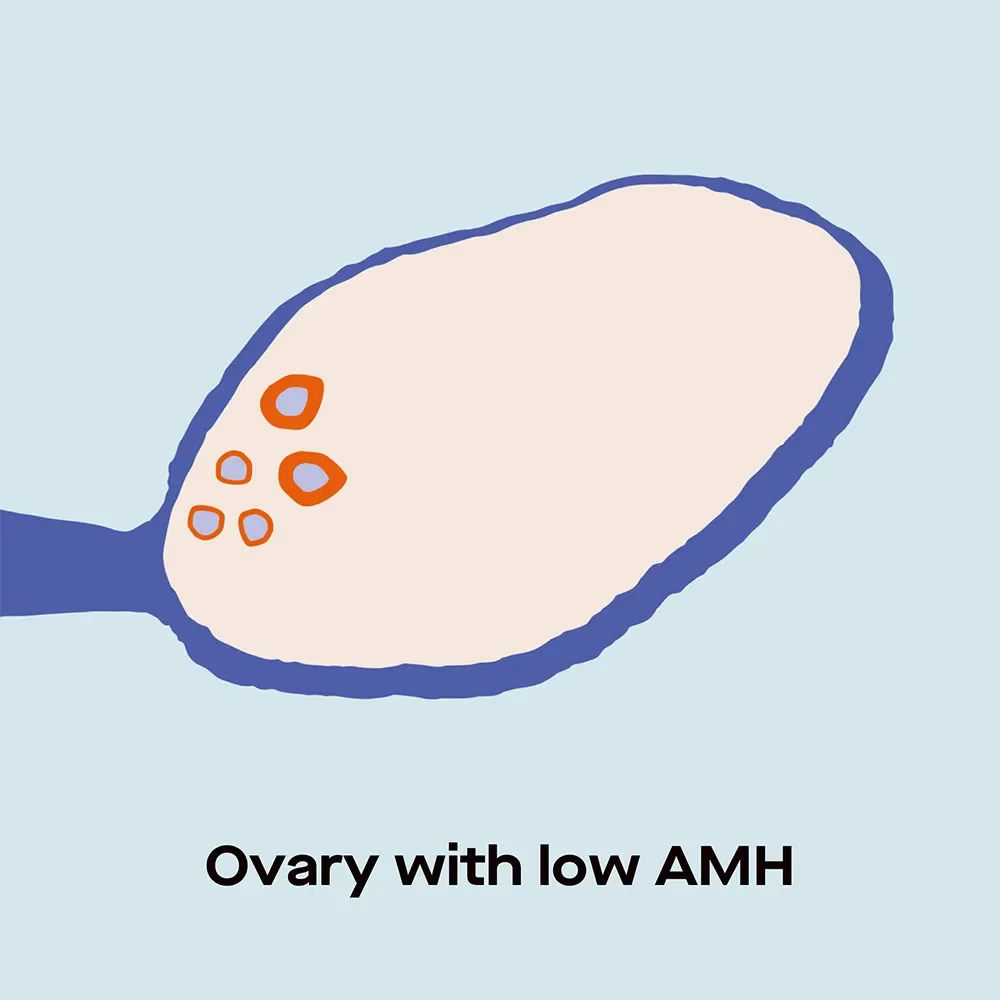
Low AMH levels might shorten the reproductive window.
How can you test your AMH levels?
The Modern Fertility hormone test measures your AMH levels using the same test that a specialist at a fertility clinic would use — but you can do it from the comfort of your couch for a fraction of the price.
No matter what birth control you’re on, you can always check in with your AMH level using Modern Fertility. With our test, you’ll also get access to:
Physician-reviewed reports based on your results
A free 1:1 consult with our fertility nurse
Online tools to track hormone changes over time and help you plan your timeline for kids
Access to our live Q&As
An invite to the Modern Community to connect with others and get your questions answered

Test your AMH to understand Ovarian Reserve.
DISCLAIMER
If you have any medical questions or concerns, please talk to your healthcare provider. The articles on Health Guide are underpinned by peer-reviewed research and information drawn from medical societies and governmental agencies. However, they are not a substitute for professional medical advice, diagnosis, or treatment.
Iwase, A., Nakamura, T., Osuka, S., Takikawa, S., Goto, M., & Kikkawa, F. (2015). Anti-Müllerian hormone as a marker of ovarian reserve: What have we learned, and what should we know?. Reproductive medicine and biology , 15 (3), 127–136. https://doi.org/10.1007/s12522-015-0227-3
Shebl, O., Ebner, T., Sir, A., Schreier-Lechner, E., Mayer, R. B., Tews, G., & Sommergruber, M. (2011). Age-related distribution of basal serum AMH level in women of reproductive age and a presumably healthy cohort. Fertility and sterility , 95 (2), 832–834. https://doi.org/10.1016/j.fertnstert.2010.09.012
Practice Committee of the American Society for Reproductive Medicine (2015). Testing and interpreting measures of ovarian reserve: a committee opinion. Fertility and sterility , 103 (3), e9–e17. https://doi.org/10.1016/j.fertnstert.2014.12.093
